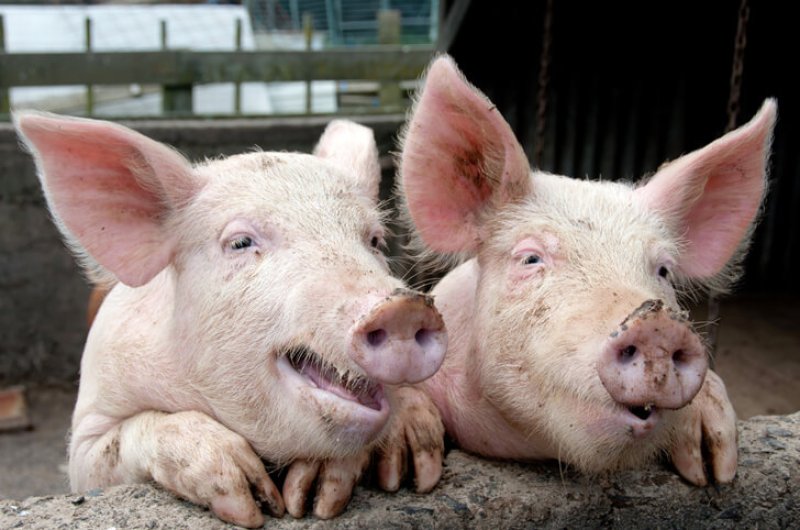As flu season rears its ugly head, humans aren’t the only ones on the virus’ warpath. Pigs are also vulnerable to deadly infections. Porcine illness can mean huge losses for farmers and price hikes for pork. Now, new research shows gene editing could be a solution.
…
Newborn pigs are particularly susceptible to two viruses: transmissible gastroenteritis virus (TGEV) and porcine epidemic diarrhea virus (PEDV) …. In 2013, infection with the virus killed nearly 7 million pigs ….
Randall Prather, a genetic engineer and molecular biologist …. suspected a molecule called ANPEP helped the deadly viruses take hold in the pigs. He thought deleting ANPEP in the pigs’ genomes might protect them from infection. Prather had seen success with a similar approach a few years ago. Knocking out a gene called CD163 in pregnant pigs protected the offspring from porcine reproductive and respiratory syndrome virus ….
…. Prather and colleagues used CRISPR/Cas9 gene editing to change two letters in the pigs’ 3 billion-letter genome. Pigs with the genetic modification did not make the ANPEP molecule, but appeared healthy, grew normally and produced offspring of their own, the researchers reported. Then they infected the gene-edited pigs with the TGEV and PEDV viruses.
When the researchers examined the pigs for signs of infection, they found getting rid of the ANPEP molecule prevented the TGEV virus from sickening the pigs ….
Read full, original article: Scientists Use CRISPR To Protect Pigs Against Deadly Virus































